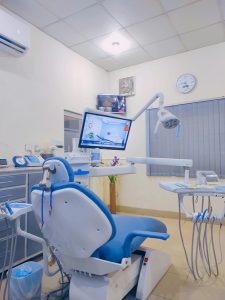Pregnancy is a significant period of change, not just for the body overall but for oral health as well. Many people are unaware of the profound impact that pregnancy can have on dental health. Pregnancy can lead to various dental issues due to hormonal changes, dietary alterations, and more. Understanding how to navigate these changes is critical to maintaining optimal oral health both during and after pregnancy.
Understanding The Oral Health Changes During Pregnancy
Pregnancy causes hormonal fluctuations that can affect the gums and teeth. Expectant mothers need to pay close attention to their oral health during this time to prevent potential issues.
-
Hormonal Fluctuations: Increased levels of hormones such as estrogen and progesterone can lead to a heightened response to plaque, potentially resulting in pregnancy gingivitis.
-
Nausea and Vomiting: These common pregnancy symptoms can lead to tooth enamel erosion due to the acid in vomit.
-
Cravings for Sugary Foods: These cravings may lead to an increased risk of tooth decay if proper oral care practices are not maintained.
Common Dental Problems Faced During Pregnancy
-
Pregnancy Gingivitis: Many pregnant women experience gum inflammation, bleeding, and tenderness, which are signs of pregnancy gingivitis.
-
Tooth Erosion: The acidity from morning sickness can wear away the protective enamel of the teeth.
-
Increased Risk of Cavities: Dietary changes and increased carbohydrate intake can lead to a higher risk of cavities.
Maintaining Good Oral Health During Pregnancy
Expectant mothers must adapt their oral care routine to address the changes that pregnancy brings.
-
Regular Brushing and Flossing: Stick to twice-daily brushing and daily flossing to minimize plaque buildup and address gingivitis.
-
Avoiding Sugary Snacks: Be mindful of dietary choices, especially the intake of sugary snacks and drinks that can lead to tooth decay.
-
Use of Fluoride Toothpaste: Employing fluoride toothpaste can help strengthen the teeth and protect against tooth decay.
Tackling Pregnancy Oral Health Myths
Myths surrounding pregnancy and oral health can lead to confusion and anxiety among expecting mothers. It’s essential to debunk these myths and provide clear, factual information.
-
Losing a Tooth for Every Baby: This old wives’ tale is unfounded. With proper oral hygiene and dental care, you should not lose teeth during pregnancy.
-
Dental Work is Unsafe: Necessary dental work can and should be conducted during pregnancy, especially if it concerns the health of the mouth and teeth.
-
X-rays Should Be Avoided: Modern dental X-rays are extremely low in radiation, and with proper shielding, they can be safely conducted if necessary.
The Importance of Regular Dental Visits
Regular visits to the dentist go a long way in preventing and treating any oral health issues that may arise during pregnancy.
-
Routine Dental Check-up: Keep up with routine dental check-ups to monitor any changes or concerns.
-
Professional Teeth Cleaning: These cleanings can help manage plaque and prevent gingivitis.
-
Dental Exam and Cleaning: Regular exams can catch issues early, and professional cleanings can help maintain oral health.
Incorporating clear aligners in Greensboro into your dental care routine may also be a consideration for some expecting mothers who are seeking to straighten their teeth. Aligners are typically considered safe for use during pregnancy, but it’s always best to consult with a dental professional first.
Choosing the Right Dental Services
Selecting appropriate dental services during pregnancy is crucial. This includes services related to preventive, cosmetic, and emergency dental care.
-
Preventive Dentistry: Focus on prevention with services like sealants and fluoride treatments.
-
Cosmetic Dentistry: For those interested in cosmetic services, it’s best to discuss with a dentist the best time for treatments like teeth whitening.
-
Emergency Dental Service: Know that emergency dental services are available if sudden oral health issues arise.
For those looking for specialized services like pediatric dentistry, Greensboro’s trusted kid’s dentist may offer insightful guidance for expectant mothers concerned about how their oral health might affect their children’s future dental health.
Dental Care After Giving Birth
Postpartum dental care is just as important as care during pregnancy. Hormones and habits can still affect your oral health after delivery.
-
Dental Care Routine: Continue with an effective daily oral hygiene routine.
-
Postpartum Dental Visits: Schedule a follow-up visit to address any issues that may have developed during pregnancy.
-
Oral Care Practices: Maintain good oral care practices to set a positive example for your newborn as they grow.
Oral Hygiene Tips for Expecting Mothers
The right oral hygiene practices can make a significant difference in maintaining dental health throughout pregnancy.
-
Brushing Technique: Use a soft-bristled toothbrush and a gentle circular motion to protect sensitive gums.
-
Flossing Habits: Floss once a day to prevent plaque buildup between teeth, a common area for gingivitis to start.
-
Mouthwash Use: Antimicrobial mouthwash can be an additional tool for controlling plaque and improving gum health.
Enhancing your home dental care routine with professional advice and services from locations like Lake Jeanette Orthodontics & Pediatric Dentistry ensures you’re not only looking after your oral health but also setting the stage for your child’s dental wellness.
The Role of Dental Insurance During Pregnancy
Dental insurance can alleviate the financial burden of dental care during pregnancy by covering services like routine exams and necessary procedures.
-
Coverage for Routine Visits: Many dental insurance plans cover routine visits, which can help manage costs for regular check-ups and cleanings.
-
Understanding Your Policy: It’s vital to know what your dental policy covers, especially for pregnancy-related dental visits.
-
Affordable Dental Services: Insurance can make other preventive and necessary dental services more accessible and affordable.
To End
Pregnancy does indeed affect oral health in a myriad of ways, but with the right information and care strategies, these changes are manageable. Adapting to an enhanced dental care routine, debunking common myths, and seeking professional guidance when necessary are all critical measures for expecting mothers.
Remember, maintaining oral health during pregnancy isn’t just about caring for yourself; it also lays the groundwork for your child’s future dental health. Prioritizing dental health is an integral part of prenatal care that should not be overlooked.



